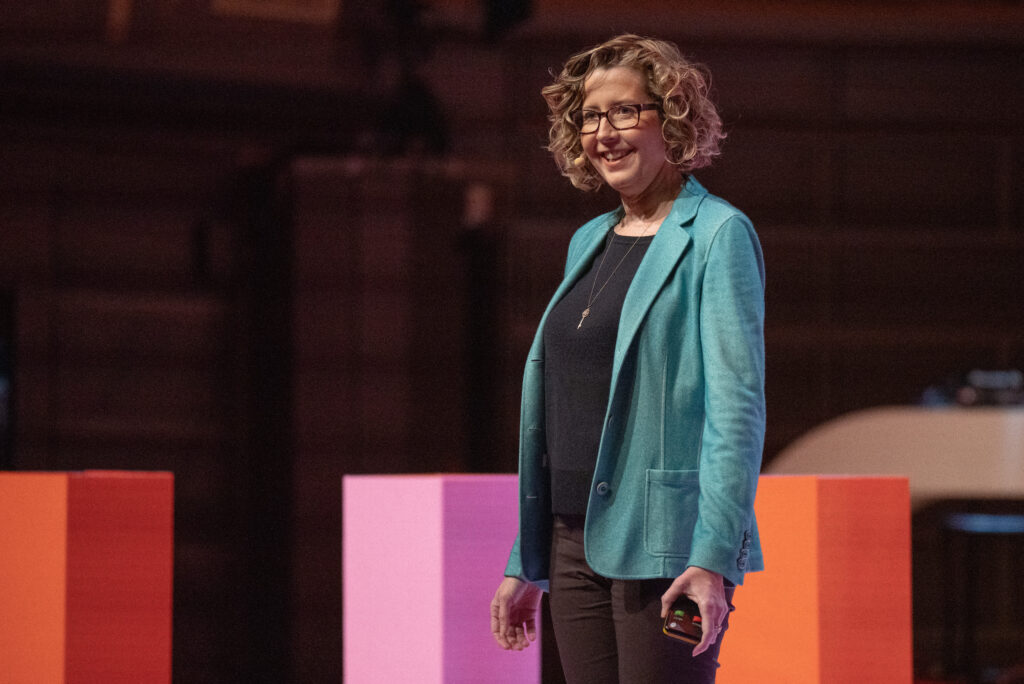
Michael: Hello Jennifer, we are so happy to have you in the second season of Leading Complexity! So for those who don’t know you, can you just briefly tell us who you are?
Jennifer: Sure, Michael, I’m delighted to be with you for this program. Yeah, so I’m Jennifer Garvey Berger, and I have spent basically my whole career helping leaders develop the inner and outer resources they need to handle a world of increasing complexity.
So I think about what are the, what are the tools we need to grow ourselves from the inside, and what are the tools we need to help people on the outside, and I write books and get to talk to great people like you about that.
M: Nice, so how would you describe complexity?
J: Complexity, I think, is when there are so many interwoven, interdependent features that you both can’t tell what’s going to happen next, and you also can’t get a purchase on how to control the thing that’s emerging. It’s kind of bigger than the sum of its parts, and it has this interdependent, nonlinear feature that means that a small action from a small player might have a huge effect, or it might not have a huge effect, and you just don’t know, and that’s what makes it so exciting and so creative. And also so overwhelming and stressful for most people.
M: Great, so what is your key message to leaders navigating this complexity?
J: Well, I think the first thing, the first message I want to offer is; actually, we can be great at this. And when we are great at this complexity, it is not like a cruel force that we have to find ourselves toiling against.
It’s actually one of the great energetic moves of the world, and I think the people who will be able to navigate this next moment in our human history well are those who don’t fight against complexity but actually can understand the patterns and the approaches that make complexity a friend in terms of innovation, creativity, and nonlinear greatness. As opposed to an enemy which I think, I think a lot of people naturally think about complexity as an enemy.
M: Your talk will be opening for the season, and you will talk about complexity genius. Briefly, how did you come up with that, then, what’s it about?
J: So my dear friend Carolyn Coughlin and I have been thinking for years together about this question about what complexity does to the body. Actually, we’ve gotten really interested. In my book before this, I did a lot of research into these kinds of traps leaders fall into, and I found that all of them had this kind of body component. That we are in some ways, our nervous system is working in this complex world without our noticing it very much.
And so complexity genius was our investigation into what is it that we are naturally gifted at. It’s our natural birthright, it’s inside us that makes complexity not necessarily effortless but kind of a wonderful force for us to be inside. And then we discovered it over the course of our research, this kind of clear paradox, that we have incredibly good resources for handling complexity until things get really complex. And then those resources, we become overwhelmed, and those resources kind of leave the room and we do less helpful things.
And so Carol and I have been working on this question of how do we amplify those natural resources so that when we’re faced with complexity, we can rise to the occasion with grace and joy. So that’s what we will be talking about.
M: Good. I hear that this overwhelm and handling of the complexity is a key issue for many leaders today, really looking forward to having you start off our second season of Leading Complexity on September 28th. So looking forward to it.
J: Can’t wait to be there.
Watch the video interview in our LinkedIn post
Learn more about the program and Jennifer’s session by visiting http://www.leadingcomplexity.com



